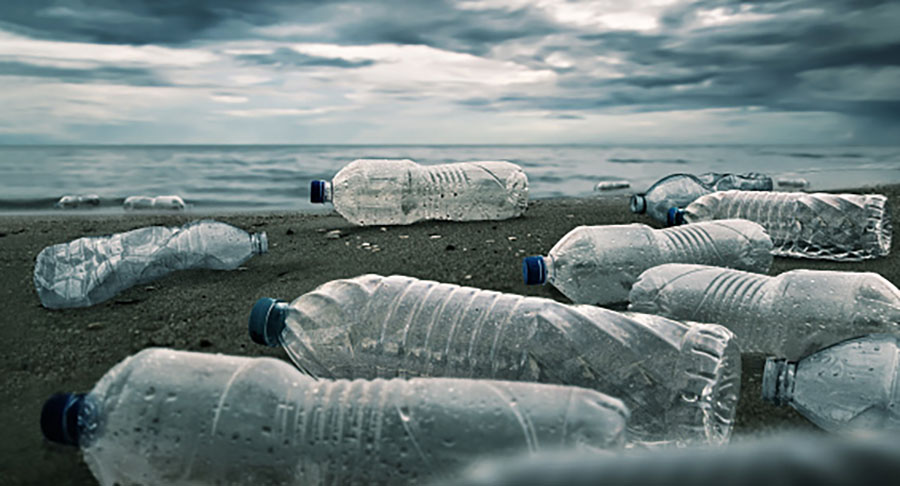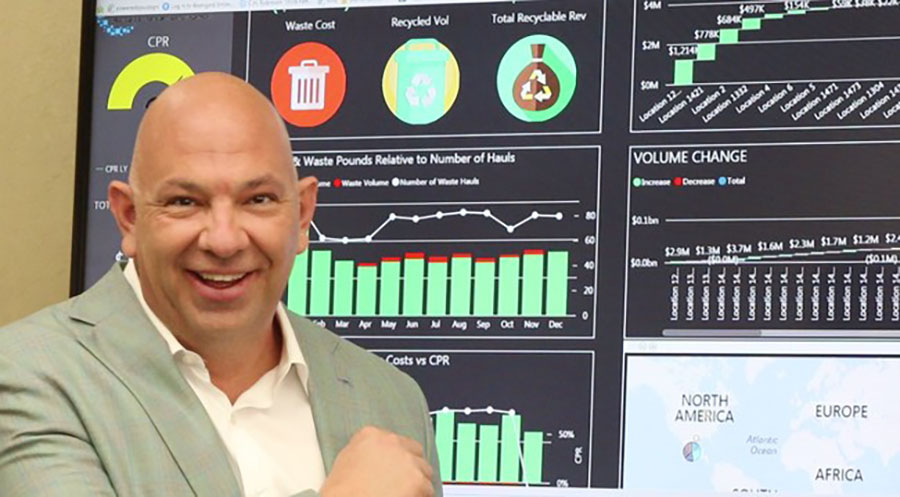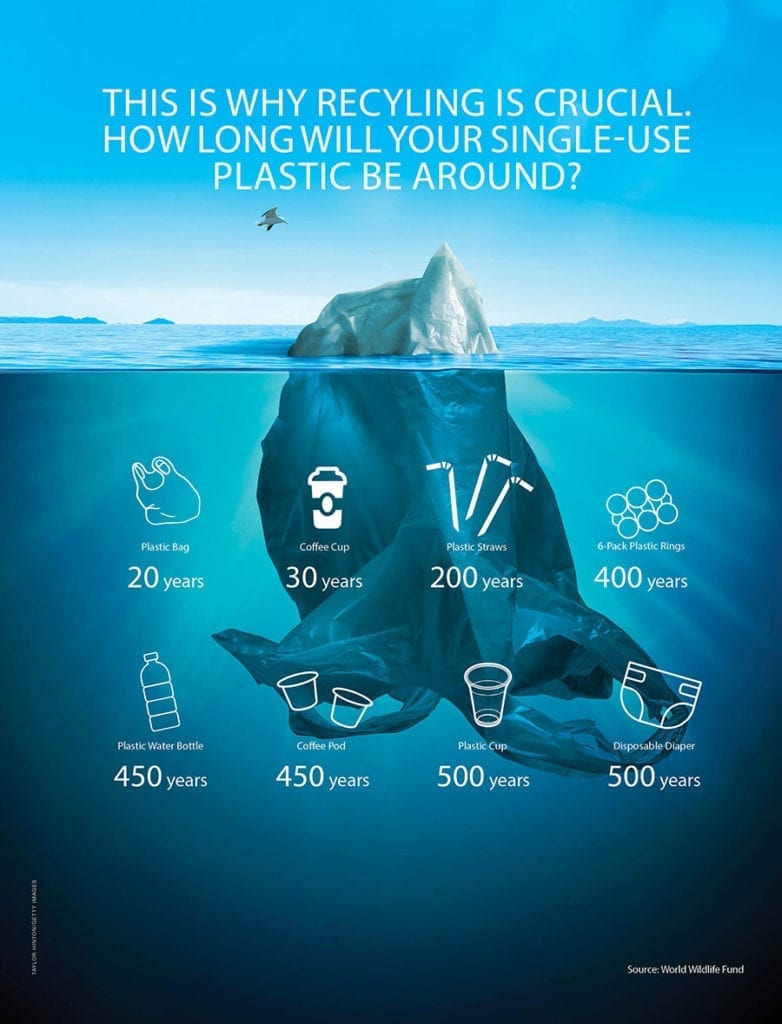When plastic was invented in 1907 the world didn’t quite understand the environmental impact. Fast-forward more than a century and the substance has accumulated dramatically in our landfills, and more alarmingly, in the Great Pacific Garbage Patch. Here, scientists estimate that 80,000 tons of floating plastic debris converge, three times the size of France — from large objects to microscopic particles.
Rick Perez, founder of Avangard Innovative, dispels some myths around plastic recycling. His revolutionary tracking device measures data on company waste and reports on where hidden green assets lie. Waste and recycling have always been regarded as the same thing, but Perez says recyclables are a commodity that must be integrated into our balance sheets.

Lie #1
Since China and India stopped buying our recyclables there’s no more market — it must go to landfills, we have no choice.
The Reality
These countries have always offered an easy solution for our waste, but there are still markets in the U.S., Mexico, and Canada that offer alternatives. New cost structures need to be put in place, but the markets exist.
The Solution
Make the cost of sorting, recycling and returning plastics to the supply chain an attractive financial option. When the cheapest option for exporting plastics is blocked by a trade war, seek local partners wanting to price their service at Indian and Chinese levels — effectively capturing a new market.

“There is no reason whatsoever for even one pound of good, sorted plastic to go into any landfill or ocean.” — Rick Perez
Lie #2
It’s impossible to recycle plastic film.
The Reality
“Absolutely not true,” says Perez. This has more to do with industry laziness than technical limitations. Most recycling and sorting facilities don’t have the proper machines to avoid plastic film clogging the mechanisms. The problem has more to do with companies not investing in the correct equipment.
The Solution
Avangard Innovative is building the world’s largest facility to process plastic film, that will use 75 percent less energy than producing with raw materials. The secret to processing plastic film is to capture it before it reaches the sorting centers. Overhauling the current way plastic is collected and sorted, from the curbside and industrial facilities, is key.

Lie #3
Bio-degradable plastic is the solution.
The Reality
Think that bio-degradable plastics are better for the environment? They’re not. All plastics are bio-degradable — but their timing is different. “Is a bio-degradable plastic cup that takes 250 years, (instead of 500 years) to degrade really better,” says Perez. Bio-degradable plastics contaminate current recycling streams and cannot be recycled, so we’re adding more problems to the recycling process.
The Solution
Separating bio-degradable plastics from other plastics will allow it to be recycled. The manufacturers of polymers need to create plastics that are designed and manufactured to be recycled. Designers must have recycling in mind when they choose product materials.




































